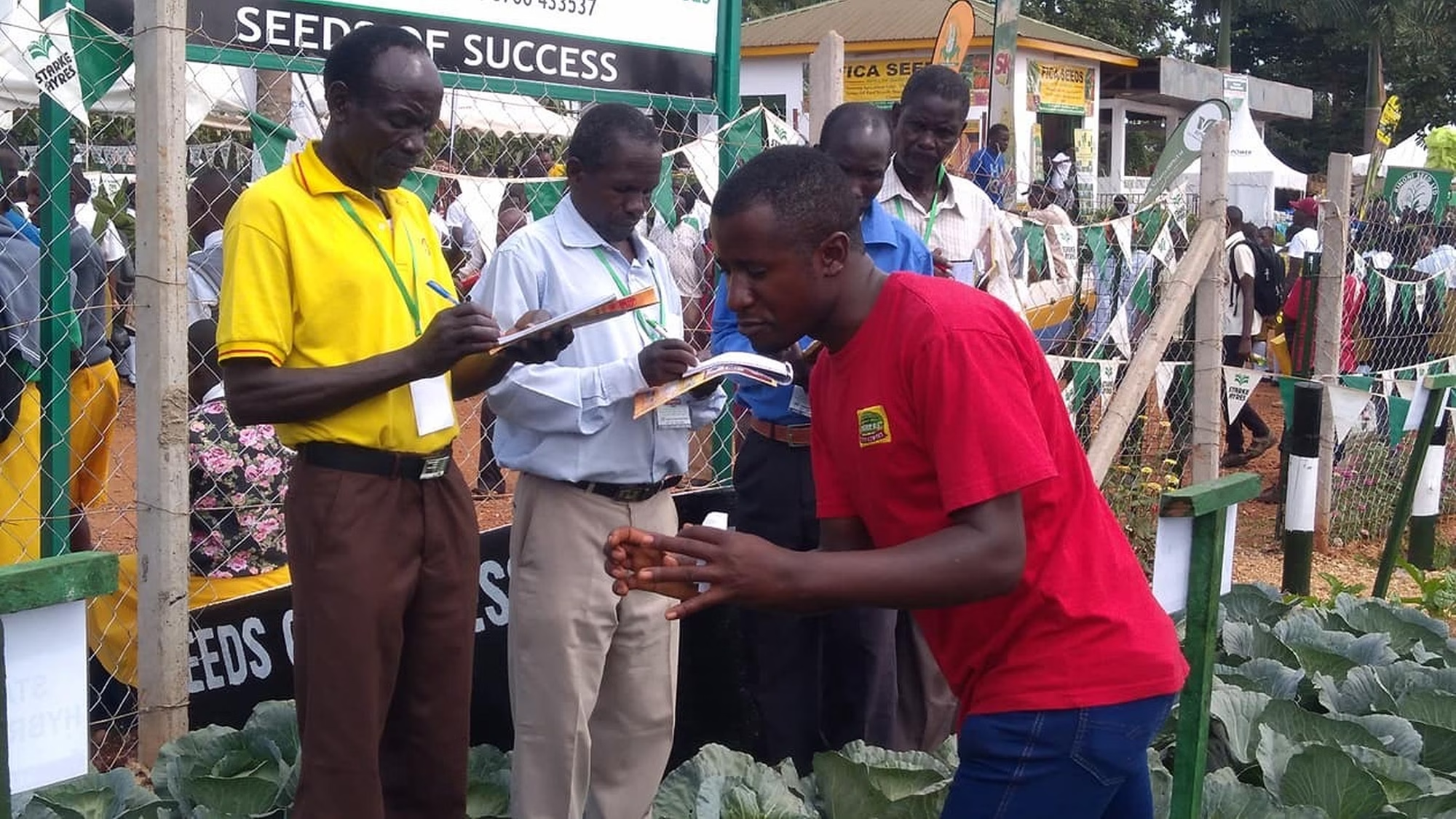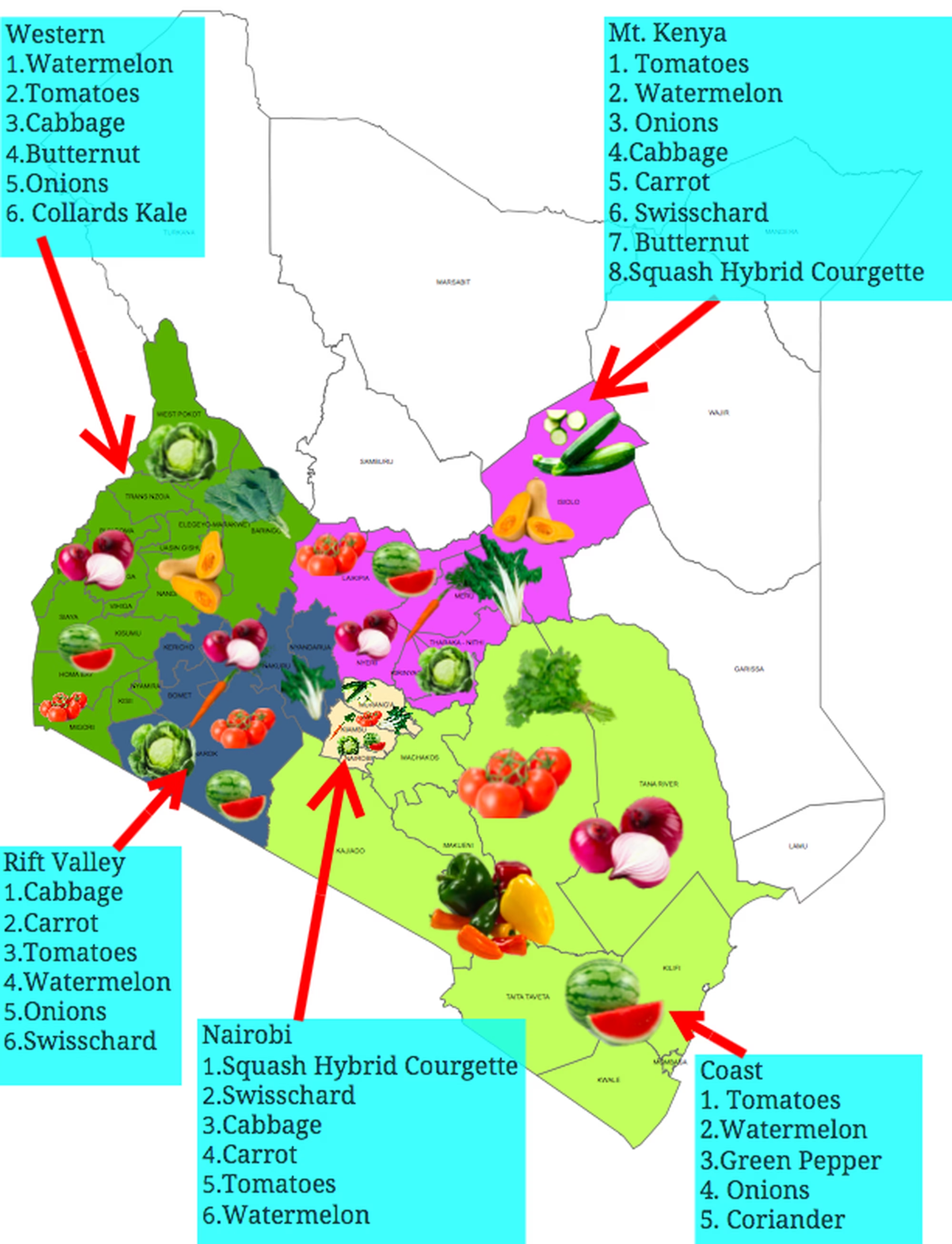
Starke Ayres works closely with small-scale farmers around Kenya to ensure the best possible quality
The seed-growing industry in Kenya is evolving dramatically. Small-scale growers now account for a much larger share of the country’s production, and enjoy far better yields since the introduction of Starke Ayres’ hybrid seeds the past few years.
Five years ago, 70% of Starke Ayres’ Kenyan turnover came from export growers, with 25% coming from small-scale farmers who supply the local market. During the last financial year, small-scale farmers contributed 55% of this turnover, with 40% coming from export growers, and the remaining 5% from retailers.
Josphat Njoroge, managing director of Starke Ayres in Kenya, says small-scale fruit and vegetable farmers in Kenya typically work with less than five acres of land, sometimes with as little as a quarter of an acre. With such limited soil surface area available to them, it is essential that these farmers maximize their yield, and disease resistance is of paramount importance as well as yield quality.
Njoroge explains that in recent years there has been a considerable shift from open-pollinated varieties (OPV) to hybrid seeds. “If you take onions, for example, previously around 90% of the seed market was OPVs varieties, but currently more than 70% come from hybrids varieties.”
All watermelon seeds supplied by Starke Ayres in Kenya now are hybrid, as are 95% of squash seeds’ market share.
Cabbage, which grows mainly in Naivasha and on the slopes of Mount Kenya, needs to be transported along very bumpy roads to reach its markets. With 80% of cabbage now being grown with hybrid seeds, the benefits have been significant.
“Our growers have found that the cabbages they are now producing are tough enough to survive these roads. The cabbages have also been more resistant to diseases, and the quality is far better,” says Njoroge.
Growers are also now seeing cabbages reach maturity within 75 to 90 days depending on variety with uniform and compact heads which is roughly three weeks earlier than the growing period with OPV seeds.
Starke Ayres has established an excellent relationship with small-scale growers around Kenya, and several innovations have been behind the rise of these growers. WhatsApp chat groups have been established for each crop grown by Starke Ayres’ small-scale clients, and in the case of very popular crops (such as tomatoes) there are even regional chat groups.
Starke Ayres qualified agronomists and field assistants use these groups to assist growers with requirements for the entire process from planting to harvesting, with participants sharing learnings and seeking assistance where required. Field assistants have also made use of motorbikes to reach areas that four-wheel vehicles cannot, and have ensured that even the most remote farmers receive the necessary support and attention.
Kenya’s export growers, who remain key customers of Starke Ayres, have been hit hard by Covid-19-related restrictions, but look forward to resuming trade relations with buyers in countries such as France, Germany and the United Kingdom.
French beans and broccoli are among the more successful export crops, and are grown in areas such as Naivasha, Mount Kenya and Nanyuki.
The following graphic depicts Kenya’s five seed-growing regions and which crops are grown in these regions.

To connect with Starke Ayres in Kenya, like the Facebook page.
If you have any queries about growing with Starke Ayres, you can also send an email to josphat.njoroge@starkeayres.com.